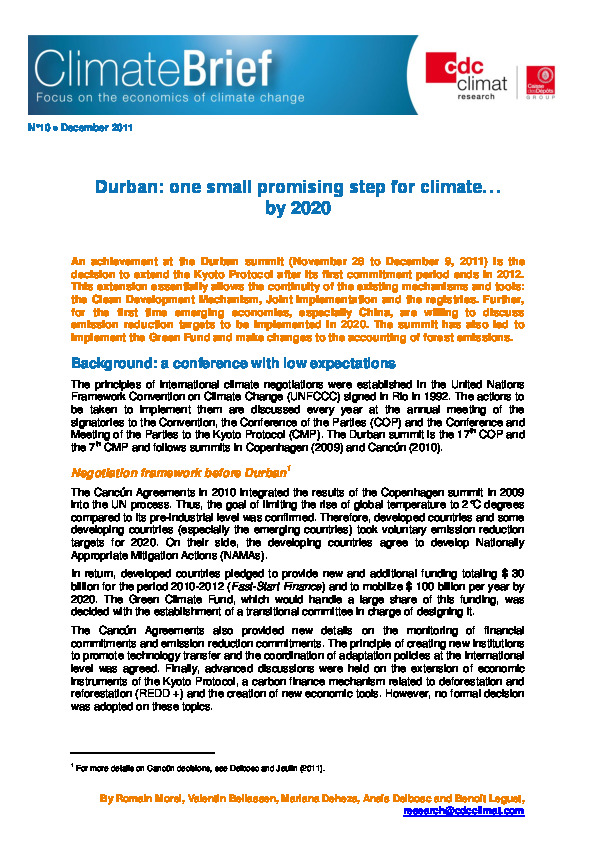Durban: one small promising step for climate… by 2020
An achievement at the Durban summit (November 28 to December 9, 2011) is the decision to extend the Kyoto Protocol after its first commitment period ends in 2012. This extension essentially allows the continuity of the existing mechanisms and tools: the Clean Development Mechanism, Joint Implementation and the registries. Further, for the first time emerging economies, especially China, are willing to discuss emission reduction targets to be implemented in 2020. The summit has also led to implement the Green Fund and make changes to the accounting of forest emissions.
